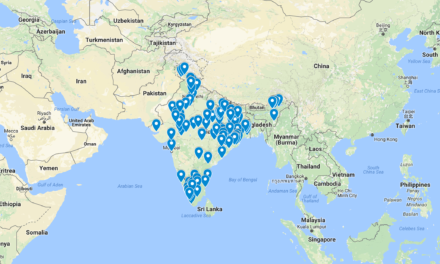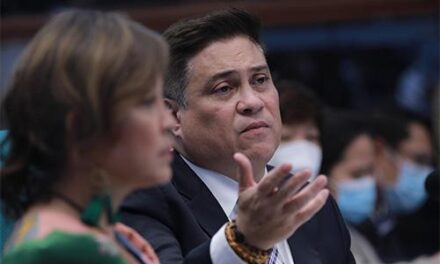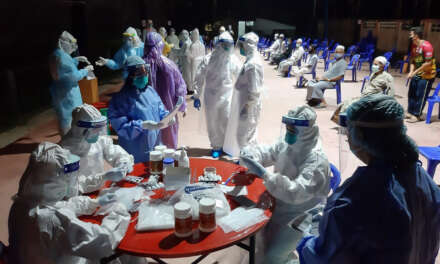by Nicola Bullard*
Why is no-one saying the truth? Why is no-one admitting that Thailand’s economic crisis is the predictable consequence of a development model which is deeply flawed, profoundly unfair in its distribution of benefits and totally destructive to the environment and social relations. Why is everyone pretending that the fault lies with the lack of regulation of the financial sector or the mendacity of the property speculators, as if that were the only problem. Scapegoats are easy to find, and they can be willing participants in the scam especially if there is a back-room deal to protect their interests.
And worst of all, now that the system has reached its inevitable denouement, it is again the poor and marginalised and ordinary folk who are left to bear the burden. They have paid the price for getting Thailand to this point: the last ten years of growth has created one of the greatest gaps between rich and poor in the world, second only to Brazil, the environment is almost beyond repair, urban life is a daily struggle against the man-made elements of pollution and traffic, while rural communities have lost everything to development their land, their culture and their daughters. Now they will pay the price again in VAT, unemployment, rising prices, cuts to health, education, public transport and environmental restoration and, ultimately, by ceding sovereignty to international capital and the IMF.
The new constitution is a panacea: the immediate problems of corruption, cronyism and baht-for-vote elections may disappear, but democracy is nothing if ordinary Thais do not have the possibility to lift their heads from the daily grind and take part in the political process. What is needed, more than electoral reform, are commitments to redistribution and equity so that the visions of the constitutional drafters become more than that. What is needed is economic democracy.
The economic crisis created the political circumstances where the government had no choice but to accept the new charter, however the same economic circumstances will ensue that the constitution remains little more than a nice idea. With the IMF breathing down your neck to cut and trim and privatise, there is little hope for land reform, equitable taxation, increased attention to the difficulties faced by the rural and urban poor, broad-based education and devolution of power to communities along with the necessary resources and say over their allocation.
It is probably too late for Thailand to bail out of the madness of rapid industrialisation: the damage is done. However, it is not too late for remediation, for some compensation to those who have really paid the price. Don’t bail out the finance companies, bail out the farmers and factory workers who have wittingly or unwittingly bought into the economic miracle, but now realise that one person’s dream can be another’s nightmare.
*Nicola Bullard is a senior associate with Focus on the Global South, a policy research, analysis and advocacy programme affiliated to the Chulalongkorn University Social Research Institute.









